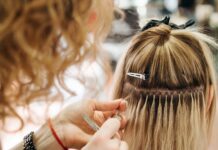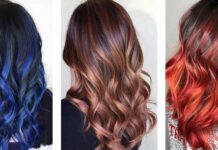Without giving a second thought, we all can agree on the fact that our hair means a lot for us, for all of us! Remember experimenting on hair with hair dyes and styling them differently every single day? Unfortunately, you can’t do all this throughout your life and the reason is pretty clear. Hair changes with age!
Ageing and Hair Changes!
Ageing, a natural process in the human body, changes our body in many ways. It is not only our skin or bodies that go through changes as we age but also change with ageing. Hair, an important part of one’s personality, is what people care the most about.
Read Also: 7 seer secrets best products for skincare
The effect of ageing on hair is as different as the people themselves are. For some people’s hair, ageing is only mild with little effects while for others it is complete hair loss.
Hair Changes Treatment
Hair loss is one of the common aspects of hair ageing. Depending upon the extent of hair loss, people opt for treatment options to minimize the side effects. Hair loss treatments range from over the counter hair growth supplements and oils to hair transplant surgeries.
People opt for these ways depending upon their own convenience and their hair loss extent. My uncle who was supposed to get a hair transplant went to many hair doctors in Karachi in search of the best treatment option. Despite all the available treatment options, it is important to know how ageing changes your hair.
How ageing change your hair?
Ageing can change your hair in the following ways, including;
1- Hair greying
As you begin to age, you are more likely to see the grey hair strands in your scalp. Grey hair is the most evident sign of ageing. The hair colour starts becoming light and then ultimately coloured hair strands turn white. Our normal hair colour is due to the presence of a coloured pigment known as melanin.
Thus colour pigment tends to vanish with time as hair follicles start making less pigment turning our hair into white. The extent of hair greying and the age at which your hair turns grey is determined by your genetics.
2- Changes in hair texture
Hair texture is another common hair change associated with ageing. Hair strands tend to be frizzier over time. The possible reason behind this could be the change in synchronization and the difference in growth timing of different hair strands as they grow and grow into the curve. When hair follicles grow in a fashion that the formation of the curve is incomplete, hair ultimately becomes frizzier.
3- Brittle hair
There are bonds present in hair strands that are responsible for their overall strength. These bonds present between and among the hair strands tend to disrupt ageing. This ultimately weakens the hair strands making them prone to becoming brittle.
4- Hair thinning
Hair strands made from protein. The hair strands after a certain period of time leave the scalp making room for new hair strands to grow. However, with ageing hair strands tend to lose thickness which is evident by the diameter reduction of hair strands with ageing.
The size of the hair shaft is determined by the presence of stem cells present in hair follicles responsible for hair thickness. With ageing, the stem cells in the hair follicle tend to reduce which leads to the thinning of hair strands. It is often observed that the hair strand diameter is more in women before their menopause and was significantly reduced after the menstruation was paused.
5- Shine
Hair shine is an important aspect of overall hair texture. The shine of the hair is due to the light reflected from the outer cuticle layer of the hair strands. The structure of the hair cuticle is formed by the placement of plates that lie together and held together by the lipids or oil present in the skin. However, ageing lipids tend to reduce which disrupts the structure of the cuticle resulting in decreased hair sine.
Bottom Line!
Ageing can take a toll on your hair health. Not only this, but the fashion choices you make earlier in your life also determine how your hair changes with age. Thus, it is important to protect your hair to slow down the process of ageing by taking cold showers, conditioning your hair more often, using wide-toothed combs as well as protecting your hair against the chemical and heat caused damage.









